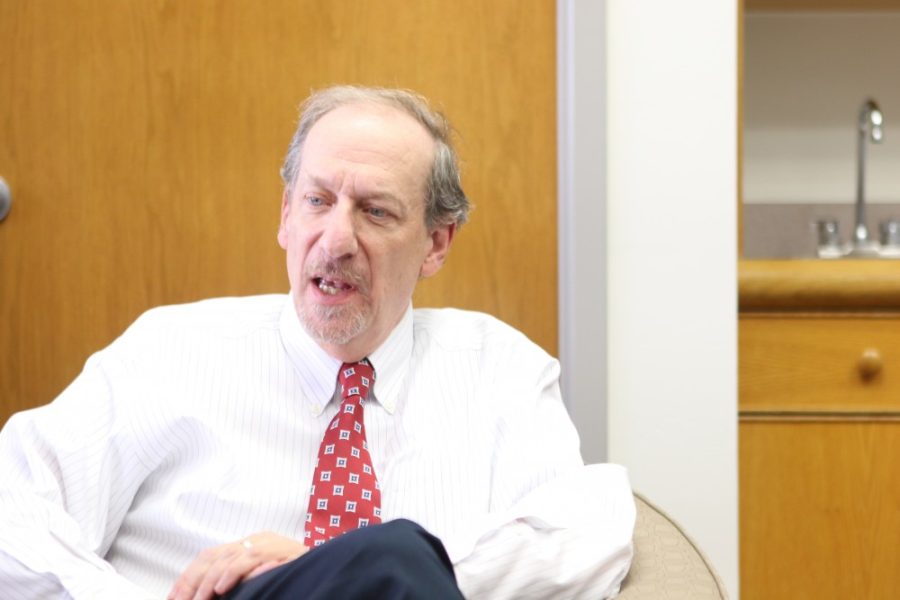In President Barack Obama’s final State of the Union address on Tuesday, Obama called for an initiative for the U.S. to cure cancer.
“For the loved ones we’ve all lost, for the family we can still save, let’s make America the country that cures cancer once and for all,” Obama said.
Dr. Andrew Kraft, director of the UA Cancer Center, manages all major scientific, clinical and administrative elements as they relate to cancer at the center and has been director since September 2014.
There are currently only 45 comprehensive cancer centers in the U.S., according to the National Cancer Institute, and the Cancer Center is the only one of its kind in Arizona.
“Cancer research is a little like a car going down a hill. It continues to pick up speed the more we learn. The more we learn, the more novel things we can do,” Kraft said. “Part of it is clearly technology driven so we’re able to, for example, sequence the whole human genome in a matter of days.”
Although there are many aspects to cancer research that are demanding, Kraft said the most challenging one is funding.
“Any basic or translational research takes outstanding funding and in the present State of the Union, [Obama] talked about committing himself to curing cancer,” Kraft said. “That was first began by Richard Nixon with the ‘War on Cancer’ and we’ve continued, but clearly we continue to need additional funding to make that promise a reality.”
The Cancer Center tackles fundraising in several different ways including donations from prominent members of the community who want to support cancer research, and events that involve the community.
“People have to be motivated to see the cure for cancer and that’s everyone, it’s not only the federal and state governments, but it’s you and I,” Kraft said.
Cancer can be treated with local therapy, which can be surgery or radiation, Kraft said.
“We are curing many patients up front, so early diagnosis is very important,” Kraft said. “Many times, the smaller the cancer, the easier it is to cure with local means.”
Kraft also said the prevention of cancer is just as important. Advances have been made to prevent cancers from reoccurring by using different therapy methods including chemotherapy and antibodies.
Gavin Young, a UA graduate student seeking a master’s degree in electrical engineering, spent four years working at the Cancer Center as a laboratory technician conducting research on mostly lung and colon cancer.
“The overarching goal that [Obama] threw out there, I think was quite optimistic to say that we’re going to cure all of cancer,” Young said. “It’s not too much to say that it is probably one the hardest medical endeavors we have ever undertaken as a society.”
Young said that it would have been better for Obama to have made curing a specific cancer, such as colon cancer, his goal rather than all cancers. Young says this is an extremely large and broad umbrella.
“When you say, ‘let’s cure all cancers’ as an overarching umbrella term, there are so many different kinds of cancers for different organs, but also different tissues within the organ, and then when you’re talking about the different tissues, there’s different kinds of cancers within those tissues,” Young said. “So it’s a huge variety of different cancers that can occur and each one has its own pathologies as well as its own specific treatments.”
Young said that during his time at the Cancer Center, he enjoyed the tight-knit community and surprise results the most.
“When you run a test and expect to get answer A and you end up getting the opposite of A, that’s really exciting,” Young said. “And more often than not it leads you down a bigger path in your research than what you originally sought out to show.”
Kraft said the future for cancer research looks very bright.
“We are learning new things every day,” Kraft said. “We are discovering a lot of genetic causes of cancer, as well as environmental causes and learning much more about potential public health hazards leading to cancer.”
Follow Amanda Oien on Twitter.









